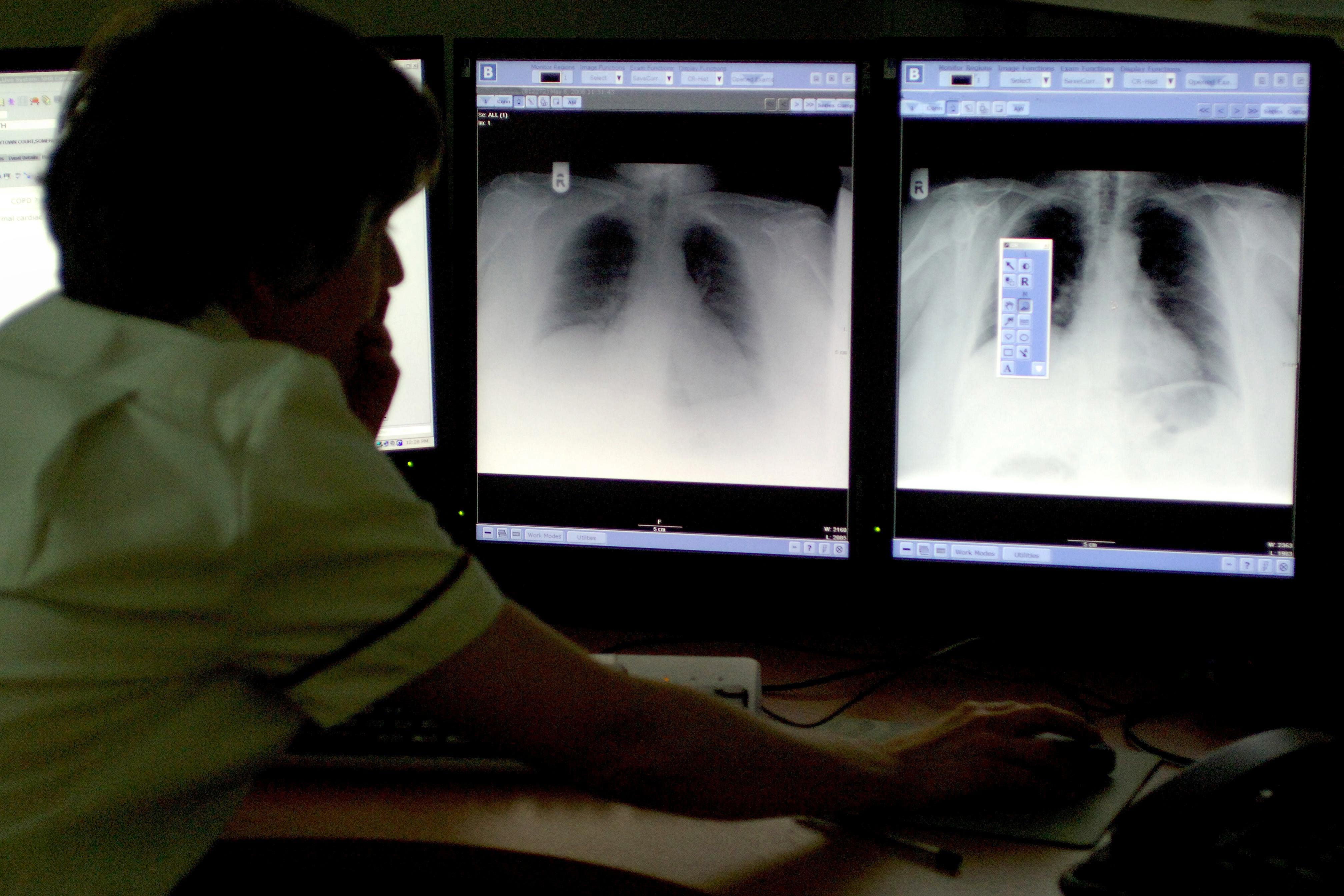Computer modelling ‘could simplify lung cancer screening’
More than 43,000 people a year are diagnosed with lung cancer in the UK.

Computer modelling could help detect who is at a higher risk of developing lung cancer, with researchers hopeful that the findings could be a step towards personalised screening to pick up a number of diseases early.
A team from University College London (UCL), the University of California, the University of Cambridge and the Alan Turing Institute said their machine learning model could “substantially simplify” how screening programmes figure out who is at risk of developing lung cancer.
According to the NHS, more than 43,000 people are diagnosed with lung cancer in the UK each year.
The Government announced a targeted lung cancer screening programme for England in June.
With machine learning, we’ve been able to substantially simplify how we work out who is at high risk, presenting an approach that could be an exciting step in the direction of widespread implementation of personalised screening to detect many diseases early
People aged 55 to 74 who smoke or used to smoke will be assessed using their GP record and invited for screening.
Those considered high risk will also be invited for specialist scans every two years.
The research team looked at data from 216,714 smokers from the UK Biobank and 26,616 smokers taking part in the US National Lung Screening Trial to develop a new model for lung cancer risk.
The machine learning model used three predictors – age, smoking duration and “pack years”, which is used to measure a person’s exposure to tobacco.
It calculated the odds of a person developing lung cancer and dying of lung cancer within five years.
The model was then tested on data collected from the US Prostate, Lung, Colorectal and Ovarian Cancer Screening Trial.
The study found the model predicted lung cancer with an 83.9% sensitivity and deaths from the disease with an 85.5% sensitivity.
Dr Thomas Callender, a senior clinical research fellow of respiratory medicine at UCL, said: “We know that screening for those who have a high chance of developing lung cancer can save lives.
“With machine learning, we’ve been able to substantially simplify how we work out who is at high risk, presenting an approach that could be an exciting step in the direction of widespread implementation of personalised screening to detect many diseases early.”
The findings have been published in the journal PLOS Medicine.
The model in this study is another useful step in the ongoing work to optimise the lung cancer screening programme and find the best ways to invite and inform people
Cancer Research UK’s director of evidence and implementation Naser Turabi said: “Lung cancer takes more lives than any other cancer, and an earlier diagnosis can greatly improve people’s chances of survival. That’s why rolling out a targeted national lung cancer screening as soon as possible is so important.
“The model in this study is another useful step in the ongoing work to optimise the lung cancer screening programme and find the best ways to invite and inform people.
“We welcome research in this area, but better quality data on smoking status and history is vital to ensure those who are most at risk of lung cancer benefit most.”
Prime Minister Rishi Sunak said the UK’s lung cancer screening programme, which will cost £270 million a year once up and running, could provide “a lifeline to thousands of families across the country”.
The rollout means 325,000 people will be newly eligible for a first scan each year, with 992,000 scans expected per year in total.
The first phase is expected to reach 40% of those eligible by March 2025, with the aim of 100% coverage by March 2030.
Machine learning is an application of artificial intelligence (AI), which at the moment is being used by the NHS to read chest X-rays in suspected lung cancer patients to detect the disease more quickly.
Bookmark popover
Removed from bookmarks